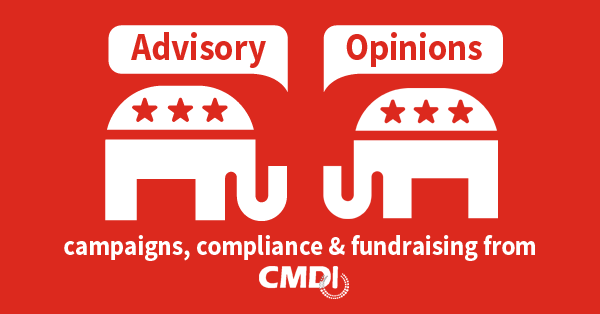The FEC recently considered two proposals about changing the rules on foreign money in U.S. elections. Is this partisan politics, media hoopla, or a real problem that the FEC needs to address? In episode #11 of Advisory Opinions, Jack and Adrienne discuss what laws already exist, what non-citizens can and can't do on a campaign, and what campaigns should worry about.
While the NPR reported that the “Federal Election Commission can't decide if Russian interference violated the law,” the situation is complicated:
It is already illegal for non-citizens to contribute to U.S. elections or work for them in any decision-making capacity. However, after the 2016 election, there have been calls to strengthen these laws.
Because the Commission is short two members, all decisions must be unanimous. Until the U.S. Senate confirms two more members, any action taken by the FEC must receive four affirmative votes. Currently, there are two Republicans, one Democrat, and one independent.
The FEC has a track record of investigating these complaints.
Earlier this year, the Commission fined the Bernie Sanders campaign for $14,500 for covering the cost of airplane tickets and providing a daily stipend to Australians who helped them in 2016. They also fined the Australian Labor Party $14,500.
In 2013, the FEC levied $375,000, one of their largest fines ever, on the 2008 Obama campaign for a number of violations. One of the major complaints with 2008 campaign was their acceptance of prepaid credit cards that could not be traced.
What laws already exist?
 The Federal Election Campaign Act, which established the FEC, also banned foreign money from elections. This includes:
The Federal Election Campaign Act, which established the FEC, also banned foreign money from elections. This includes:
Any contribution at any level of election — including federal, state, local — to a candidate committee, PAC, or political party with a monetary contribution, donation of anything of value, independent expenditure, or any type of disbursement.
Disbursements of electioneering communications.
Donations to presidential inaugural committees.
People who engage in these activities will face fines and penalties from the FEC and possibly criminal prosecution by the Department of Justice.
Foreign nationals are also prohibited from any kind of decision-making process on any kind of election-related activity for any type of political entity.
What can non-citizens do?
Green card holders can make political donations and participate in campaigns.
Foreign nationals can volunteer. The FEC has rules on providing intellectual property, such as designing a logo, speaking at an event, or providing entertainment for an event.
There are additional rules for U.S. subsidies of foreign corporations that wish to form PACs or make donations.
What was proposed?
 Commissioner Weintraub submitted two proposals. One was the re-introduction of a proposal that she submitted in 2016 and 2017. The other was a “narrow” one calling for “expedited rule making.” Both received 2-2 votes along party lines.
Commissioner Weintraub submitted two proposals. One was the re-introduction of a proposal that she submitted in 2016 and 2017. The other was a “narrow” one calling for “expedited rule making.” Both received 2-2 votes along party lines.
The two Republicans on the committee were reluctant to take action before Congress had completed their full investigations. Commissioner Petersen explained:
“There are going to be findings that are going to be issued by the (intelligence committee), and I think that I look forward to seeing what those findings are to see to what extent the efforts to interfere involve matters within our jurisdiction,” Petersen said.
The proposal would have required that super PACs and other groups sign statements when filing reports that they did not use money from foreign sources in U.S. elections. The proposals also included measures that would open rule-making for politically-active nonprofits that are not required to disclose donors and U.S. corporations that are influenced by either foreign nationals or foreign governments.
The proposal from 2017 also had elements that might go beyond the FEC’s regulatory authority. Weintraub suggested the Commissioners:
Receive open and closed-door briefings from the DOJ or FinCEN.
Examine the FEC’s enforcement function.
Offer public reassurances on FEC data integrity.
Determine if additional rulemaking is needed, such as using the FEC’s powers to hold hearings, compel testimony, and produce documents outside of enforcement duties.
Listen to the episode and subscribe to Advisory Opinions on Google Play, iTunes, and Tunein.
The views and opinions expressed on this podcast are those of the hosts and do no necessarily reflect the policies or positions of CMDI, or any other agency, organization, employer, or company.
